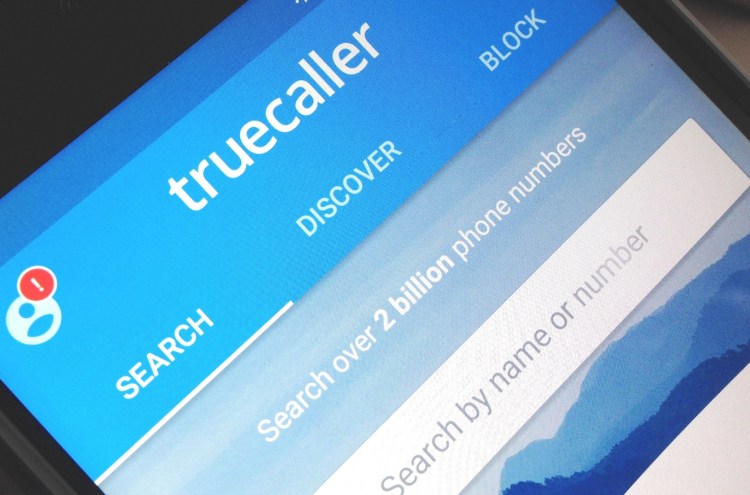Truecaller has launched a new software development kit (SDK) that lets third-party apps sign up new users with their existing Truecaller profile and associated verified phone number.
Founded out of Stockholm, Sweden, in 2009, Truecaller is like a crowdsourced telephone directory that lets users flag spam callers to the community, block them, or simply put a name to a number so that anyone who has the app installed can instantly see who’s calling. Now, with more than 200 million downloads under its belt, Truecaller is opening its treasure trove of user phone numbers to developers for the first time, so they can onboard or verify new members of their own.
TrueSDK, as it’s known, is Android-only for now, and open to registered third-party apps — 12 partners are signed up for the launch, though it will be open to the public in the near future. Initial partners include only companies from India, such as classifieds company Quickr, bus-booking app Redbus, and mobile-payments wallet MobiKwik.
Why the focus on India for this launch? A Truecaller spokesperson told VentureBeat that phone numbers are becoming an increasingly common means of personal identification, particularly in developing markets such as India, when signing up for online services. Coupled with the fact that India is Truecaller’s biggest market, the focus on that one market starts to make sense.
“Our mission has always been to provide as much information as possible to users about their calls and use that information in meaningful ways,” explained Nami Zarringhalam, chief strategy officer and cofounder of Truecaller. “In this process, we realized the power and importance of a mobile number, especially when it comes to personal identification. Our aim is to empower third-party apps with a credible verification option and enable users to use the app of their choice by making their phone numbers their identity.”
While phone numbers are becoming a less prominent means of keeping in touch, much to Facebook’s delight, nearly everyone who uses mobile apps will have a mobile number. And as a unique identifier, it’s a good way of verifying who someone is. But of course, not everyone is happy to divulge this information to third-party services and therefore guard their phone numbers with their lives, which is why app makers likely won’t be enforcing Truecaller verification — despite Truecaller’s popularity, not everybody uses it.
TrueSDK is all about letting apps reduce friction in the signup process, making it easier for people to join — much like how apps use Facebook or Twitter authentication. Ultimately, many third-party developers would rather not develop their own in-house signup systems, and Truecaller now offers another alternative.
Interestingly, TrueSDK will be completely free for developers to use — and there are no plans to charge for the service. “Our focus is on taking this service to as many app developers as possible and help them solve one of their key pain points around user onboarding,” a company spokesperson said.
While there are other spam-blocking caller ID apps out in the wild, including Facebook’s Hello app for Android that launched in the U.S. last year, Truecaller is probably the best-known incarnation around the world. The company has received north of $80 million in funding since its inception in 2009, the bulk of which came in October 2014.
VentureBeat's mission is to be a digital town square for technical decision-makers to gain knowledge about transformative enterprise technology and transact. Learn More


